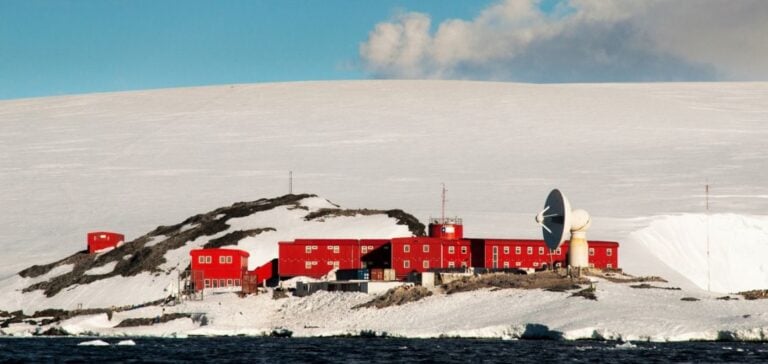Russian research company Rosgeologiya and the UK Foreign Office separately downplay suspicions of oil and gas exploration in Antarctica. The statements come after a British parliamentary committee investigated a possible breach of the Antarctic mining ban, enshrined in the 1959 Antarctic Treaty and the 1991 Protocol on Environmental Protection. Suspicions are fuelled by US sanctions against the Russian polar research vessel Akademik Alexander Karpinskiy in February 2024.
Research and potential resources
British media focus on a February 2020 statement from Rosgeologiya, highlighting seismic work and other surveys in an area adjacent to the Indian Ocean, estimating potential hydrocarbon resources at around 511 billion barrels. Professor Klaus Dodds of London’s Royal Holloway University expresses concern about strategic competition in Antarctica, fearing that Russia is collecting seismic data for prospecting rather than scientific research.
Reactions from the British and Russian authorities
A spokesman for the UK Foreign Office points out that Russia is an original signatory of the Antarctic Treaty. In 2023, all signatories reaffirm their commitment to using Antarctica for scientific purposes only. The spokesman stresses that there is currently no evidence of any violation of the Protocol. Russia maintains a long-standing geological mapping program in Antarctica, and insists that its activities are purely scientific.
“Last year, all parties to the Antarctic Treaty reaffirmed their continued commitment to working together within the agreed framework, which reserves Antarctica for scientific purposes only.” He adds: “Although Antarctica contains a wealth of mineral resources, there is currently no evidence of any violation of the Protocol. Russia has a long-standing program of surveying and mapping the geology of Antarctica… Russia has repeatedly assured Antarctic Treaty consultative meetings that these activities are for scientific purposes.”
Rosgeologiya’s statements
On the occasion of the annual Polar Explorers Day in May, Rosgeologiya reaffirms its commitment to scientific research in Antarctica. The company reports that the Akademik Alexander Karpinskiy is conducting geophysical research in the Amundsen and Bellingshausen Seas in 2023-2024. Another team is carrying out aerial surveys in East Antarctica and geological work in the Bunger Oasis. Rosgeologiya insists on strict compliance with the provisions of the Protocol on Environmental Protection, which prohibits any activity related to mineral resources other than scientific research.
Environmental and geopolitical concerns
UK parliamentary sub-committee hears evidence on Antarctic sea ice shrinking to a record low in July 2023 and microplastic pollution. A 1992 study by the US Geological Survey estimated recoverable oil resources in Antarctica at around 19 billion barrels of oil and 106 Tcf of gas, but the difficulties of Antarctic operations would probably limit commercial exploitation to 6 billion barrels and 32 Tcf. The continent has seven historic claimants: Argentina, Australia, Chile, France, New Zealand, Norway and the UK, while the USA and Russia reserve the right to make claims.
Analysis and future prospects
Tensions in Antarctica reflect the geopolitical and environmental stakes involved in exploiting natural resources in a protected region. Reassuring statements from Russia and the UK are intended to allay concerns, but worries about exploration and environmental protection persist. Scientific research activities will continue to be closely scrutinized to ensure compliance with international treaties.






















